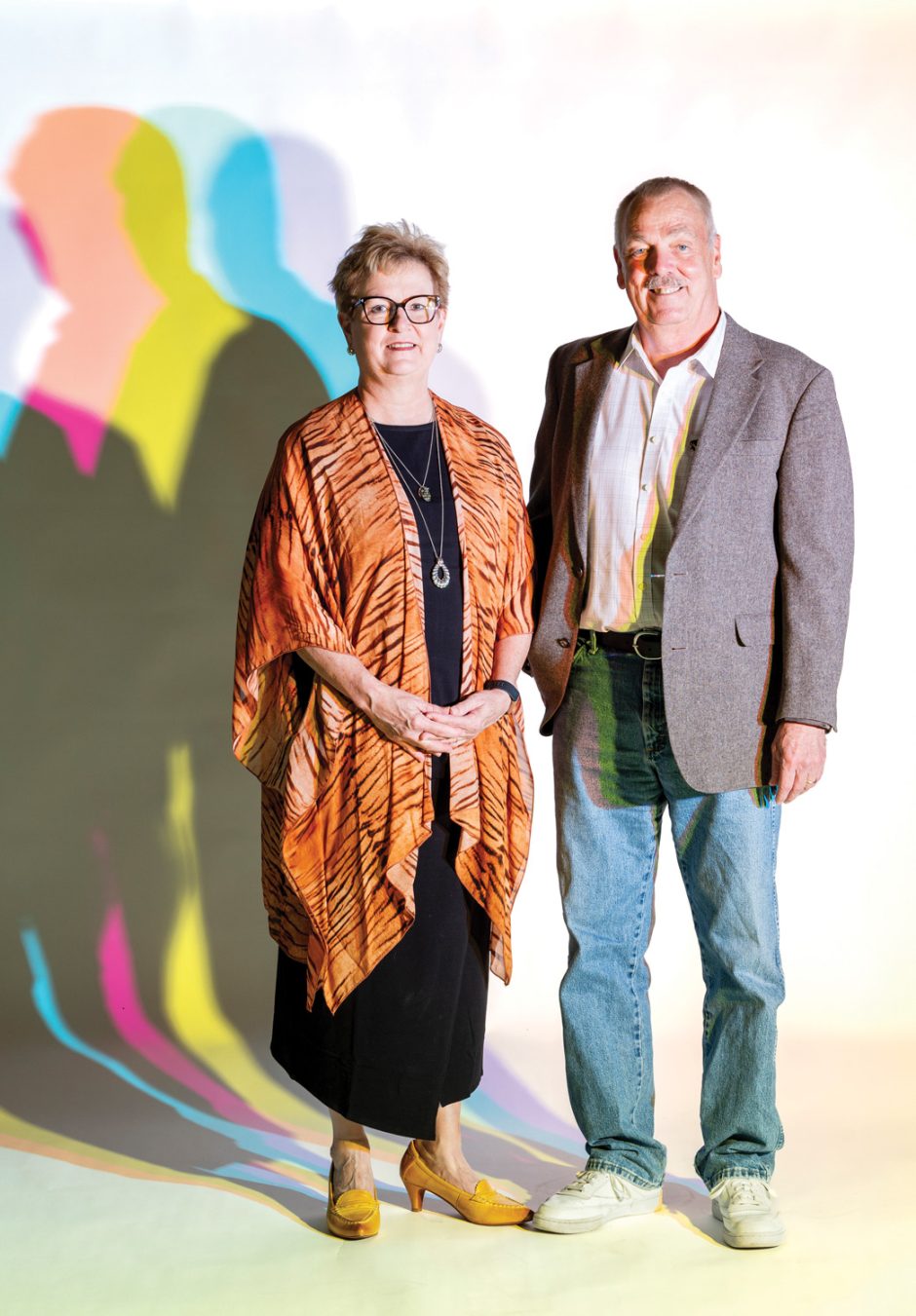
Published on Show Me Mizzou Jan. 10, 2024
Wendy and Bill Picking are equal partners in a marriage of the heart and a marriage of careers. The husband-and-wife team started their life together 35 years ago as graduate students with complementary research interests. Since then, both have earned PhDs, followed by several postdoc fellowships that prepared them for careers in academia.
The foundation of those careers is a mix of commitments to research and the students they mentor or teach. In August 2022, both were recruited into the College of Veterinary Medicine as MizzouForward professors of veterinary pathobiology; Bill has since become department chair, taking on an expanded administrative role in addition to his research and teaching responsibilities.
Although the Pickings recognize that being part of the MizzouForward mission to bring world-class researchers to the university is an honor, it has another layer of meaning for them. “It means we’ve finally made it,” Wendy says. “We came from a small town in north Kansas and are first-generation college graduates.”
Long before their work together at MU, they learned to separate their lives at work and home. “We’re together 24 hours a day, 365 days a year,” quips Wendy, who has a droll sense of humor. “We have a line, and he has stuff on his side, and I have stuff on mine. Rarely does he ever get on my side.”
While they can joke about the challenges of maintaining a work-life balance, they are serious about their research and teaching. Bill explains: “Wendy has extensive training in molecular biology. My training is in basic bacteriology and protein biophysics. So, we both understand proteins and the purification of proteins, but the biophysics and bacteriology stuff are usually on my side of the line, while the vaccinology is on her side of the line, along with the management of research funds.”
Veterinary medicine conjures up images of horses, cattle or family pets, but the Pickings study creatures that are only visible with a microscope — the pathogens that cause diseases in humans and animals. It’s no surprise that they are strong advocates of the vet school’s One Health approach, which emphasizes the interconnectivity of all life on Earth. “We are living One Health,” Wendy says. Bill adds: “I wish the world would appreciate One Health for what it is: We impact the environment, and the environment affects us. The environment affects animals, and animals affect us. Everything is related.”
To explain the specifics of their research, with its focus on shigella and salmonella, Bill relies on an illustration of these bacteria. Both types can cause serious illnesses in animals and humans and lead to death. He compares their structure to a syringe consisting of a plunger and needle, and he considers the organism itself a molecular machine. The plunger is the reservoir, storing proteins that it produces, which can then be injected into an animal’s cell with its needlelike tip. “We’re trying to stop this molecular machine from being able to inject its proteins. I’m trying to understand the whole structure so that we can someday find small molecules that will shut off the part of the bacteria that contains the proteins. Wendy is looking at vaccines that recognize the material at the tip of the needle,” Bill says.
When they began studying shigella and salmonella, the scientific community had limited knowledge about this family of bacteria. These and similar kinds obviously caused severe illness, such as dysentery and shigellosis. How they infected cells, though, was a mystery. By discovering the structure of the bacteria — now known as a type III secretion system —the Pickings have forged a path for future development of vaccines and other therapeutic interventions. And it’s not just these two bacteria that have a plunger-and-needle arrangement. “All the pathogens we work with have that structure,” Wendy says. “It’s not the same proteins, but it’s the same structure.”
The progress they’ve made understanding bacterial type III secretion systems, while formidable, is only part of the Pickings’ legacy. Their relationships with students are a source of pride and satisfaction. A few years ago, they received a text from a former student whose work had been essential in creating the first lab test to detect COVID-19. He was about to take part in a White House news conference, and as he was preparing for this career highlight, he wanted to share the moment with the Pickings. “Our success isn’t measured only in how much grant money we bring in,” Wendy says. “What’s really rewarding is when the students who come out of our labs become successful at whatever they want to do.”
To read more articles like this, become a Mizzou Alumni Association member and receive MIZZOU magazine in your mailbox. Click here to join.



